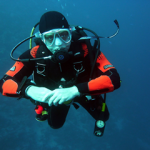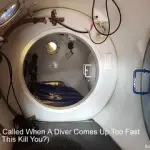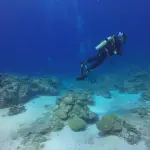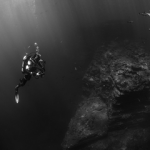
Should you scuba dive with a hangover or should you wait?
What should you do if you wake up with a hangover, but you’re booked to go scuba diving? Do you dive any way, or do you sit it out?
Can you scuba dive with a hangover? You should avoid scuba diving if you have a hangover as you’re likely to be significantly dehydrated. Scuba diving with a hangover may pose a safety risk as having alcohol in the blood and being dehydrated can increase the risk of decompression sickness and nitrogen narcosis. It also causes sea sickness on a dive boat.
The best way to do more diving is to book yourself on a scuba diving liveaboard. You can check the latest and best deals on liveaboards using the following window:
Can you scuba dive with a hangover in more detail?
I’m not looking to be a party pooper here and say you can’t drink at all the night before a dive. But what I am saying is to curb how much you drink the night before.
The reason for this is that scuba diving with a hangover isn’t the safest option.
A bladder-full the night before, which leaves you with a serious hangover in the morning, will put you at a higher risk of getting decompression sickness or the bends.
More Reading: What are the signs and symptoms of decompression sickness?
There are many decompression sickness risk factors you should take into account, which include the number and depths of previous dives, your personal fitness and level of obesity, smoking cigarettes, vapes and other drugs, plus dehydration and alcohol.
“Symptoms of dehydration in adults and children include: drunk too much alcohol.”
NHS UK – Dehydration
In addition to the risk factors associated with dehydration, scuba diving with a hangover may impair your judgement. This could lead to a higher risk of being involved in a scuba diving accident.
“People who binge drink (drink heavily over a short period of time) are more likely to behave recklessly and are at greater risk of being in an accident.”
NHS UK – Short term risks of alcohol misuse
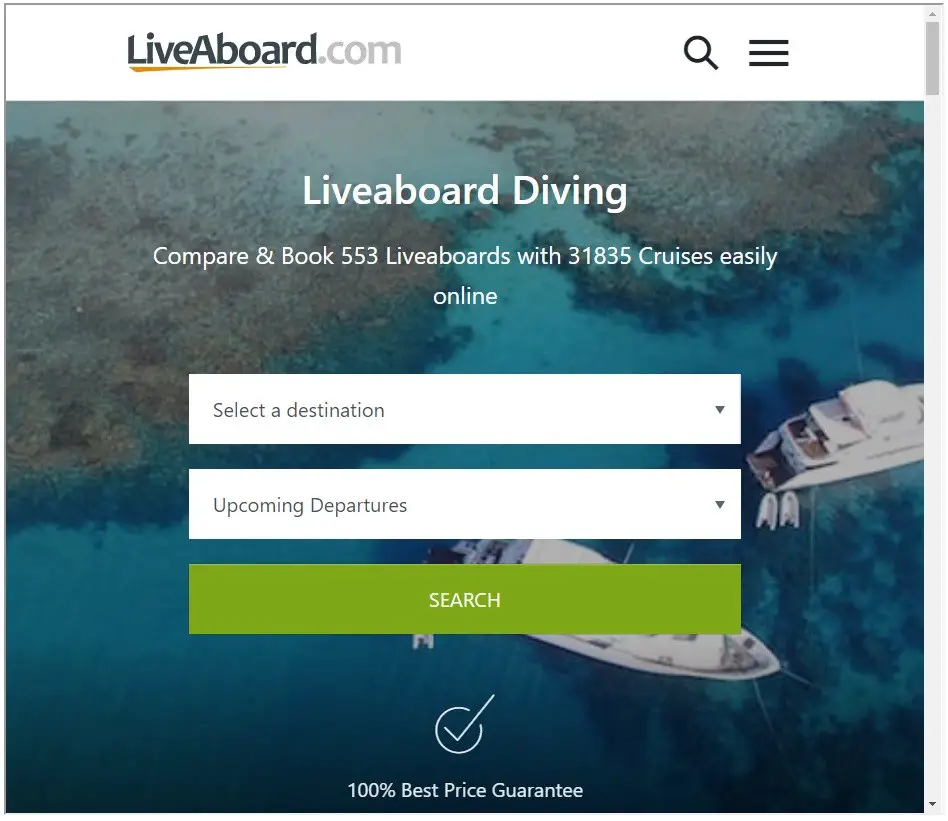
Dehydration and alcohol vs scuba diving
It’s these last two risk factors at play a critical role in this article. The chances are that if you wake up with a hangover; you’re going to be dehydrated too.
Although this isn’t necessarily scientifically proven. Plus I’m not medically qualified. But it makes sense that a dehydrated body doesn’t work as efficiently as one that is properly hydrated.
This could mean that a dehydrated body doesn’t decompress as well or as quickly as one that is properly hydrated.
Having said that, let’s not forget about the effects of the alcohol itself in your body, as this too will have an effect on how your body reacts when you scuba dive. Remember that you’re diving in a foreign environment where you’re breathing air from an aqualung!
Alcohol in your blood and being dehydrated could therefore lead to a higher risk of getting decompression sickness. Which leads me on to a few pointers, but please don’t take this as advice.
I don’t want you to get into problems, when in reality the best advice would be to not drink at all or at least drink in moderation to avoid getting a hangover.
List of options to mitigate the risks when drinking the night before
As I’ve pointed out just now, please don’t take this as gospel, but so far in my 30 years of diving it has seen me through. But then again I don’t actually drink that often or that much.
These ideas are only if you have ended up having one drink too many. You’re on holiday after all and you are there to have fun!
But read this important research note beforehand:
“Drowning cases, 2000 through 2009, for which post-mortem toxicological analysis was performed, came from the database of the Toxicological Laboratory, Department of Forensic Medicine, University of Helsinki:
Among victims ≥15 years old, unintentional drownings numbered 1697, of which, 303 (17.9%) were boating-related and 1394 (82.1%) non-boating-related. Among these, 65.0% of boating-related and 61.8% of non-boating-related victims were alcohol-positive (=BAC ≥ 50 mg/dL).“
Unintentional drowning: Role of medicinal drugs and alcohol – National Center for Biotechnology Information (NCBI)
Here are my thoughts on the matter of “drinking and diving” for what it’s worth:
- If you have drunk a skin-full the night before a dive, drink plenty of water before you go to bed.
- When you wake up in the morning, begin re-hydrating yourself by drinking as much water as you can. This will also help to flush out the excess alcohol too.
- When you’re on the dive boat, continue with drinking plenty of water to continue to rehydrate yourself.
- Consider sitting out the first dive of the day. This is especially the case if it’s a deep dive of greater than 30 metres (98 feet). As a deep dive may increase your risk of also getting nitrogen narcosis.
- If in doubt, don’t dive. You’re not only putting yourself at risk, but your dive buddy too. Always safety first!
- If you begin the dive, but then you start to feel terrible, abort the dive and ascend slowly back to the surface.
More Reading: Nitrogen narcosis vs the bends (Caused by nitrogen with different effects)
“Other factors have been linked to increased risk of nitrogen narcosis during dives while breathing compressed air and they include alcohol, fatigue, anxiety, and hypothermia.”
Nitrogen Narcosis In Diving – National Center for Biotechnology Information (NCBI)
More Reading: At what depth does nitrogen narcosis occur? (Raptures of the DEEP)
Alcohol and drinking according to Divers Alert Network
A question on DAN Europe was asked about scuba diving and alcohol, as follows: “We would like to talk about the consequences on the diver who drinks alcohol before or after a dive.”
The answer on DAN Europe, is as follows:
“Blood Alcohol Concentration (BAC) – Research has shown that one’s ability to process information diminishes, particularly in tasks that require undivided attention for many hours after the blood alcohol level has reached 0.015 percent.
This means that the risk for injury of a hung over diver increases significantly, particularly if high BAC levels were reached during the drinking episode. The American Medical Association (AMA) upper limit of the BAC for driving a vehicle in the United States is 0.05 percent. Surely diving with any alcohol on board would be foolish, considering the alien environment (water) and the complex skills required to follow no decompression procedures.
The following behavioral components required for safe diving diminish when alcohol is on board or has been on board in the previous 24 hours: 1) Reaction time. 2) Visual tracking performance. 3) Concentrated attention . 4) Ability to process information in divided attention tasks. 5) Perception (judgment). 6) The execution of psychomotor tasks.”
Divers Alert Network Europe – Alcohol
Having a hangover can result in getting sea sickness
An additional side effect of a hangover is that it can make you feel sea sick, even if you don’t ordinarily get sea sickness.
When you have a hangover you don’t feel so good. But when you add to this the ‘roll‘ of a boat on the water, you may find yourself feeding the fish in any case.
I hope you enjoyed this article about can you scuba dive with a hangover
I’d love to hear from you. Tell us about your adventures of diving and snorkeling, in the comments below. Please also share your photos. Either from your underwater cameras or videos from your waterproof go-pro’s!
If this article hasn’t answered all of your questions. If you have more questions either about snorkeling or scuba diving (or specifically on can you scuba dive with a hangover?), please comment below with your questions.
There will also be many more articles about scuba and scuba diving safety tips (and on snorkeling too) for you to read and learn about this fabulous sport.
Have fun and be safe!

